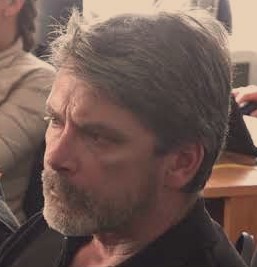For the last five years, I was given the opportunity to break a lot of news and human interest stories from Donbass. More specifically, I've lived in what became Lugansk People's Republic since 2012 and I've been writing from there since the trouble started before the Ukrainian coup happened.
The video from Victory day offers a unique perspective on Russian affairs in that the interviews are with boots to ground leadership and the topic is Russian integration. Along with the day's events and the meaning behind them is an interview with a Russian regional Deputy and the Victory Day speech by the mayor of Novoborvitsyi , LNR.
Russian Deputy Valentine Vasilchenko discusses how people on both sides of the border have a long integrated history.
I asked Russia' Deputy Permanent Representative to the UN, Dimitry Polanskiy to comment on LNR's Novoborovitsyi Mayor Desatnikov and Rovstov Raion Deputy Vasilichenko's statements.
DP -I find such cross-border contacts natural and indispensable for people living side by side for many years and being one ethnical group. We never prevented our citizens to contact their Ukrainian counterparts, we are not doing it now.
I am sure that our recent initiative on expedient passportization of inhabitants of Donetsk and Lugansk will contribute to this natural process. We are glad that it was warmly welcomed by the concerned people - the queues to the issuing centers are very long and people are very grateful to Russia for such a step.
The ambassador's comments clearly show a top to bottom commitment on the part of Russia to ease the burden placed on the people of LNR and DNR by Ukraine's war on them.
Although I've written a lot about the village I live in, this is the first occasion I've had to spend Victory Day locally. So, what's Victory Day in LNR DNR look like without all the machines of war and soldiers that go along with military parades?
The story goes back to the reality Donbass faced during the Great War (WWII) from 1941 to 1943. There was no army here fighting for the people.
There were no war machines. No tanks. No planes. No soldiers.
The men that were fighting age were long gone and Nazi Germany occupied the region. They tortured and murdered the citizenry with the help of their most willing, brutish, and bloody ally; the OUN(Organization of Ukrainian Nationalists) UPA (Ukrainian Insurgent Army).
During these years, a group of children with the help of a few Soviet soldiers that got caught behind the lines sabotaged the Nazi war effort.
They were called the Young Guards. They are famous because of the sacrifice they made for their neighbors and countrymen who couldn't defend themselves. They were Donbass famous child partisans.
From 1941 until February 1943 Donbass was under occupation. In January 1943, only one month before the region was liberated, most of the Young Guard was caught. Some were flayed alive (skinned) in Rovenki. Most were thrown down a mine shaft and some of those were still living when they were thrown in.
(Note: You can view every article as one long page if you sign up as an Advocate Member, or higher).






